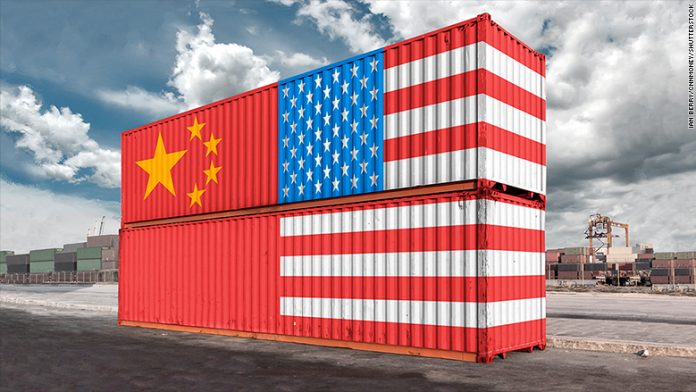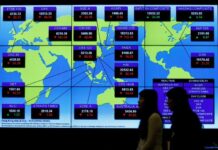
BEIJING/WASHINGTON: The United States and China escalated their acrimonious trade war on Thursday, implementing punitive 25 percent tariffs on $16 billion worth of the other’s goods.
The latest round brings to $50 billion the value of imports subjected to tariffs on either side since early July, and more are in the pipeline, adding to risks for global economic growth.
Washington is holding hearings this week on a proposed list of an additional $200 billion worth of Chinese imports to face duties.
U.S. Customs and Border Protection had confirmed on its website that at 12:01 a.m. EDT (0401 GMT) on Thursday, which is just past noon in Beijing, it would begin collecting extra 25 percent duties on 279 Chinese import product categories valued at $16 billion.
China has said its own tariffs on a list of $16 billion worth of imports from the United States would be effective at 12:01 p.m. local time.
The tariffs took effect amid two days of talks in Washington between mid-level officials from both sides, the first formal negotiations since U.S. Commerce Secretary met with Chinese economic adviser Liu He in Beijing in June.
Business groups expressed hope that the two-day meeting would mark the start of serious negotiations over Chinese trade and economic policy changes demanded by President Donald Trump.
However, Trump on Monday told in an interview that he did not “anticipate much” from the talks led by U.S. Treasury Under Secretary David Malpass and Chinese Commerce Vice Minister Wang Shouwen.
Economists reckon that every $100 billion of imports affected by tariffs would reduce global trade by around 0.5 percent.
They have assumed a direct impact on China’s economic growth in 2018 of 0.1-0.3 percentage points, and somewhat less for the United States, but the impact will be bigger next year, along with collateral damage for other countries and companies tied into China’s global supply chains.
Trump has threatened to impose duties on virtually all of the more than $500 billion of Chinese goods exported annually to the United States unless Beijing agrees to sweeping changes to its intellectual property practices, industrial subsidy programs and tariff structure.
That would far more than exceed how much China imports from the United States, raising concerns that Beijing could consider other types of retaliation, such as making life more difficult for American firms in China or allowing its yuan currency to weaken further to support its exporters.
Trump’s hard line has rattled Beijing and spurred criticism within Chinese policy circles over its handling of the trade war, sources have said.
Beijing has denied U.S. allegations that it systematically forces the unfair transfer of U.S. technology and has said that it adheres to World Trade Organization rules.






